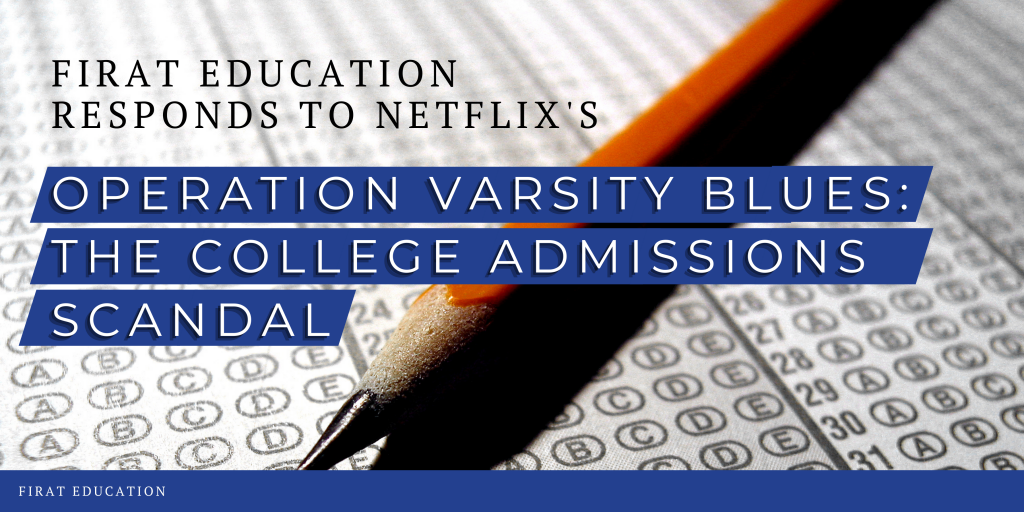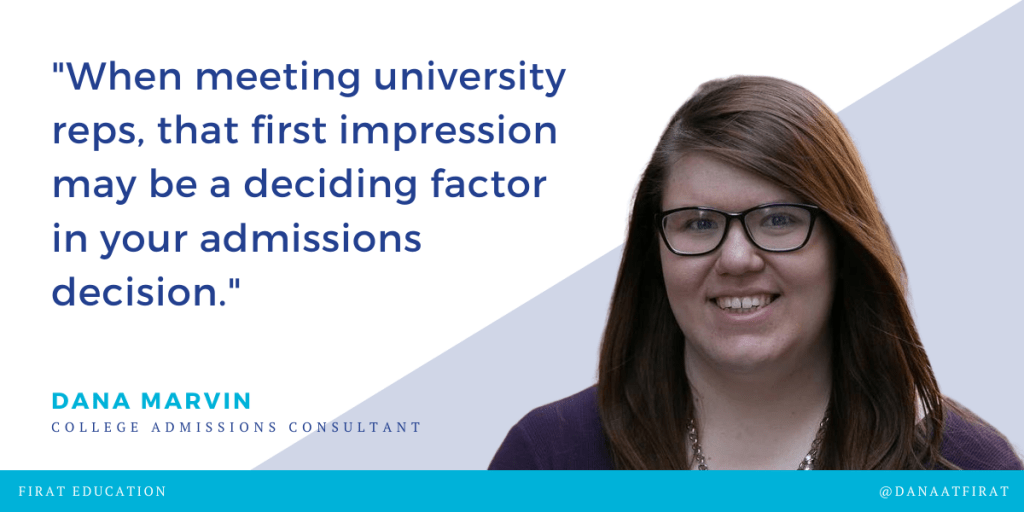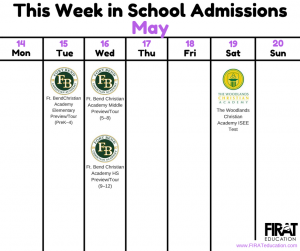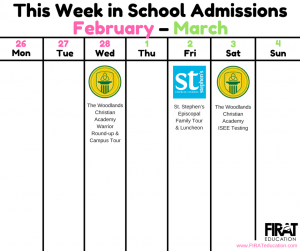
Our Commitment to Ethical Academic Guidance
Firat Education’s co-founder and Chief Educational Consultant Ibrahim Firat is a professional member, board member, and Treasurer of IECA (Independent Educational Consultants Association), an international professional association representing experienced independent educational consultants. All Firat Education consultants are either active or impending members of the IECA in order to promote the highest quality independent educational consulting to students and families seeking skilled, ethical, academic guidance.
In response to Netflix’s docudrama Operation Varsity Blues: The College Admissions Scandal, IECA commends its members commitment to the highest standards in ethical college advising while calling for greater transparency in the college application process.
The Netflix film takes a deep dive into the 2019 college admissions scandal, dubbed “Operation Varsity Blues,” involving a criminal conspiracy to influence undergraduate admissions decisions at several prestigious American universities. The scandal led to more than 50 high-profile arrests, including actresses Lori Loughlin and Felicity Huffman. The conspiracy spotlights William “Rick” Singer, who claimed to be an educational consultant and used millions of dollars from wealthy parents of college applicants to fraudulently inflate entrance exam test scores as well as bribe college coaches and administrators.
Problems in the College Application Process
While the Varsity Blues scandal exposed the specific efforts of wealthy, privileged parents to ensure their children’s admission into the nation’s top colleges, it brought to light broader problems in the college application process:
- Access to college advising in high school is unequal across the country, and particularly strained in urban and rural public high schools, where the average student-to-counselor ratio is 455:1 and more than 700:1 in some areas. This leaves school counselors overburdened and students under-resourced.
- Colleges have become increasingly opaque in their admission criteria as many adopt test optional policies.
- College acceptance rates continue to decline, partly due to the increase in applications, leading to heightened anxiety levels among students and parents.
- Sophisticated modeling means computers play an outsized role in college admissions, minimizing the personal stories of students and admission counselors.
How Firat Education Consultants Help Students and Families Navigate College Admissions
Firat Education consultants work to assure families understand the drivers in college admissions and help them navigate its complexities in order to find a “best fit” college that meets a student’s unique set of academic, social, financial, and career needs.
Firat Education consultants believe there are many great postsecondary options for every student, and no student should be made to feel that they must become something they are not to get accepted. Being and presenting one’s authentic self and demonstrating one’s own talents and abilities are ways of ensuring the right college fit. This is central to what an ethical independent educational consultant does.
As members of the IECA, Firat Education consultants offer an unequalled level of expertise, competence, and professionalism. Each undergoes an extensive application process. They must have a master’s degree (or equivalent), at least three years of admissions counseling experience, experience working with scores of students, and have visited 50 campuses before they can be considered for professional membership. In addition, all members must agree to abide by IECA’s Principles of Good Practice and submit their marketing materials for review to ensure they accurately reflect the independent educational consultant’s role.Firat Education consultants sign an annual pledge that governs their interactions with colleges, students, and parents. They agree to avoid any action that distorts or misrepresents a student’s record or interferes with a university’s ability to accurately evaluate a student. Because Firat Education consultants are committed to the highest ethical standards of practice, they have the student’s best interest as their sole focus.

Every year, thousands of admissions counselors from universities across the country travel to connect with interested students. Each admissions counselor has the same goal in mind: to convince these students that their school is the best in an effort to encourage application submissions. I encourage you to attend these sessions, take advantage of the representative’s time and learn meaningful information about the campus. More often than not, this counselor will be the one reviewing your application first.
Impressing the admissions rep means they’re more likely to remember you when your application crosses their desk this fall. That first impression can be the deciding factor in your admissions decision! Asking relevant, thoughtful questions during your visit is one way to stand out.
Check out 7 thoughtful questions you can ask the admissions rep next time they stop by your school!
Are there different academic requirements for admissions depending on what department or major you choose?
Depending on what major you decide to select, admissions requirements will differ. Asking this question shows your interest in the program. Not only that, but it gives you the information you need to make sure your application is perfect before submission!
What resources are available on campus if I need help with some of the classes I’m taking?
Although colleges have different organizations and resources available, nearly every college in the country has some sort of tutoring center. Most programs are included in your tuition, but some may cost extra to join a tutoring group or receive individual help from an older student who performed exceptionally in the course. Many also have a writing center, where professionals and English major students will help you tweak your paper before submission. Drop-in hours a few times a week for general education or low-level courses are convenient for busy student schedules! Ask the admissions counselor what would be available for you, just in case you find yourself struggling in one of your classes come time for freshman year!
What’s your favorite tradition on campus?
Tying in a tradition on campus accomplishes two things. First, admissions counselors love to see students who are interested in their own stories and experiences about what’s happening at their college. Second, you get to learn about cool traditions on campus! These are things that you would be able to experience if you chose to be a student there. One example of a great tradition I’ve heard about over the years include Barnard’s “Big Sub” where students get to snag a piece of a gigantic 700-ft sub sandwich. Another example would be the “Battle of the Red Dragons” basketball games every year between SUNY Cortland and SUNY Oneonta.
How does the Residence Life department match students to their roommates freshman year?
Finding a freshman year roommate can be nerve-racking. I’ve heard horror stories from students in the past, but just as many stories about freshman roomies who become lifelong friends. Some colleges have interesting ways of matching roommates, and many of them use some sort of survey for students to complete along with their housing deposit. Some will allow you to pick a roommate if you already know someone, while others do it completely at random. At Trinity College in Connecticut, there is one wonderful woman who makes every single roommate match for freshman every year!
In your opinion, what’s the most interesting or crazy club that your school has?
These days, most colleges have dozens of clubs and organizations. Depending on the size of the campus, that could easily be over a hundred different clubs, all offering different things. Oftentimes, colleges will have interesting clubs that you can investigate. A few of the most interesting clubs I’ve heard of include The Mustache Club at Carleton College, Humans vs. Zombie’s at Goucher College, and the Happiness Club at Northwestern University! You could discover something that peaks your interest and makes this school stand out on your list!
Are internships a requirement for graduation at your school? If not, does the college offer resources and support for finding internships in different fields?
Depending on the school, and sometimes the major you choose, an internship of a certain length may be required. Even if they’re not a requirement, internships are great resume boosters and provide valuable experience in your field of choice. Ask your admissions counselor what kind of resources are available to help you find internships, whether they be on campus, in your school’s city, at home for summer vacation, or even abroad in another country!
Do most students go home for the weekends? If not, what are some fun things to do on or off campus on the weekends?
College admissions counselors should know what students are doing in their free time, especially on weekends! For some colleges, students regularly go home on weekends because many of them do not live far. Other schools have a lot of out-of-state students, meaning there should be activities on and off campus to entertain them. You can cater this question to your own interests if you’d like. For example, if you’re into outdoor activities, you may want to ask if there are any hiking trails, parks, or hidden gems for exploration in town.
Still looking for ways to stand out when speaking to a college admissions counselor? Or maybe you have no idea what colleges you want to apply to this fall? Connect with us at firateducation.com for more information about how you can work with one of our college counselors this summer!
#Admissions events are winding down for the Summer but now’s the time to reflect on all of the events you’ve attended so far. From #OpenHouses, #CampusTours to #PreviewNights, we’re sure you’ve had quite the #admissions journey. Think about everything you liked about each school you visited but also about what you didn’t like. What factors are non-negotiable for you and determine all the factors you look for in a school that you see as #thebestfit for your child. Don’t forget to check out @FiratEducation’s #FiratGuideOnlinePackage on our website to help you in your decision-making process.
February is coming to a close and March is upon us but #admissions events are still ongoing! Be sure to check out #TheWoodlandsChristianAcademy and #StStephensEpiscopalSchool’s #admissions events this week. #FindTheBestFit for your child and remember to get @thefiratguide, a great tool to researching schools and what they have to offer.
On February 26, 2013, in an email to 6,000 member schools, The College Board – administrators of the SAT® – announced plans “to redesign the SAT so it better meets the needs of students, schools, and colleges at all levels.”
At this point, few specifics are known. Here’s what we do know:
* Given the proposed scope of change, this will not impact the class of 2013, 2014 or 2015, as the earliest that an overhauled SAT could launch would be Spring 2015, which would impact today’s freshmen. But there has not yet been a date released for the launch of the proposed new test.
*Something to note: the last time the SAT changed, in 2005, we saw the PSAT change first in October of 2004. As the PSAT is intended as the preliminary SAT for test takers, it will be worth watching to see if the PSAT changes first this time as well (in October 2014).
*The stated objective of the test change is to improve the SAT to “strongly focus on the core knowledge and skills that evidence shows are the most important to prepare students for the rigors of college and career.”*
*David Coleman, the new head of the College Board, has stated that he would like to add source material for students to analyze in the SAT writing section, but this has not yet been confirmed.
What does this change mean to you even if it may “seem” like you or your loved ones are “not impacted” based on the timeline and College Board’s statement above? Let me put it this way: EVERYBODY IS IMPACTED by this change no matter what unless you are already a senior who is done with testing and on your way to college applications.
One and only reason, which is kind of obvious, is that colleges know that this change is coming, which already trigerred (if it did not so before College Board made its decision to change the SAT) that SAT is indeed NOT the best measure to gauge students’ academic strength. How many successful leaders who finished great colleges do you know got to where they are with “unfathomable” vocabulary? (let me guess, at least 98% of you looked up the word, unfathomable, which is indeed a very commonly tested SAT word in the Reading section). ACT has gained significant grounds in the last decade because of this very reason. Therefore, I suggest do not bank on your 2250 SAT score, but take the ACT, as well, and submit both scores! This way, you will prove to colleges that it is not about how much you can memorize, but it is about how much fundamentals matter in core subjects.
This means, you cannot afford not to include the ACT in your testing plans until we know the change College Board is planning is indeed a good one…. Those of you who are currently in middle school, you will have both the new SAT and the ACT to choose from, but anyone who is older, you really only have one: Go with ACT, at least once.


